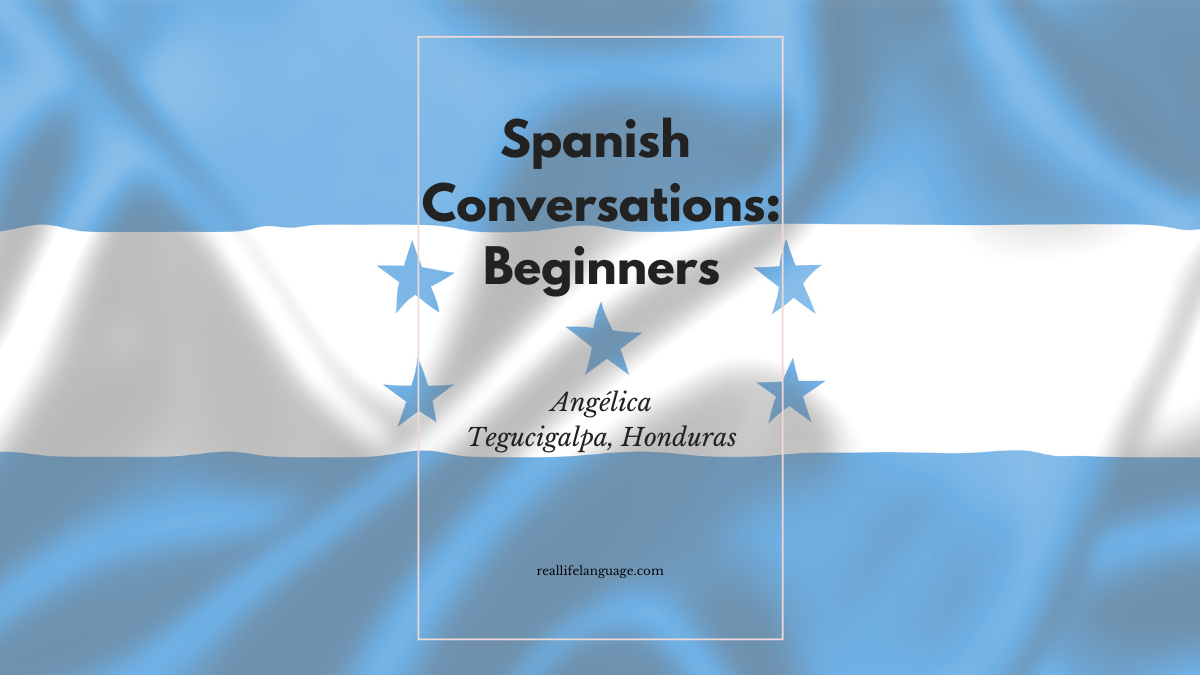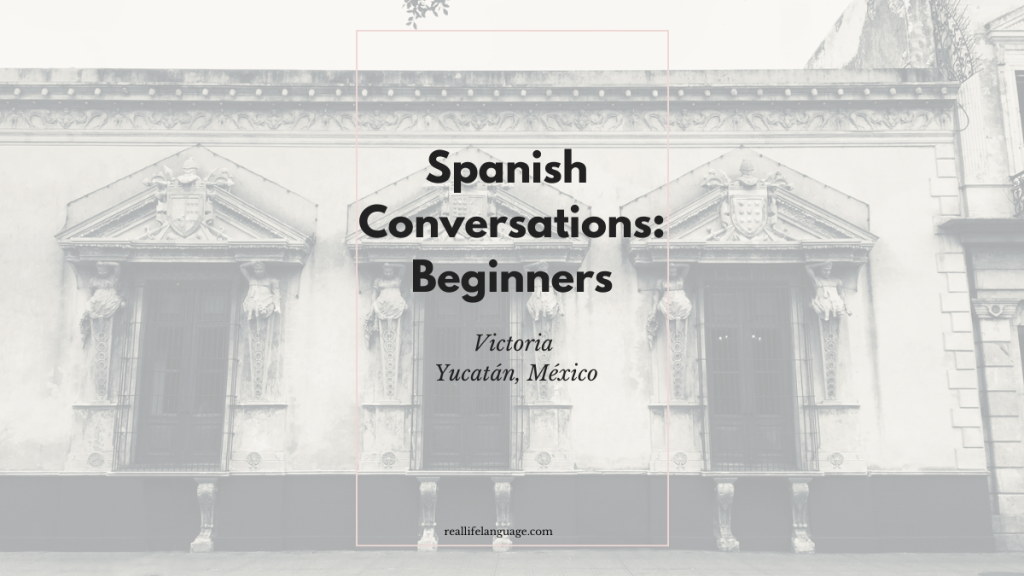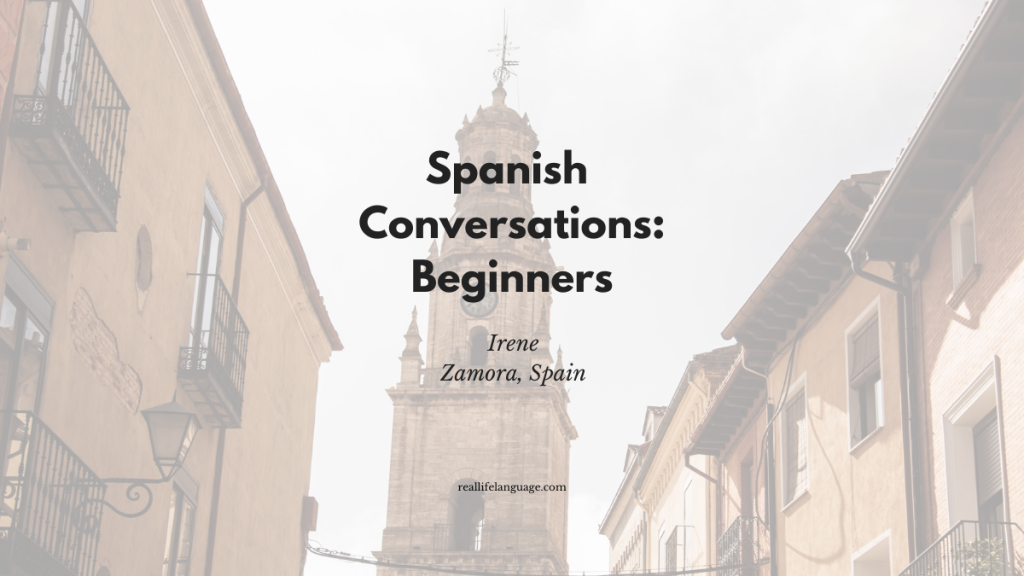 This article repurposes an everyday conversation with a Spanish learner from Honduras and is designed to help readers learn Spanish through real-life questions and answers. It highlights common topics—introductions, routines, travel, shopping, food and describing home and city—offering essential phrases, vocabulary, and short practice activities. Use these examples to build confidence in everyday Spanish and to practice speaking, listening and writing.
This article repurposes an everyday conversation with a Spanish learner from Honduras and is designed to help readers learn Spanish through real-life questions and answers. It highlights common topics—introductions, routines, travel, shopping, food and describing home and city—offering essential phrases, vocabulary, and short practice activities. Use these examples to build confidence in everyday Spanish and to practice speaking, listening and writing.
Outline
- Personal introductions and family
- Daily routine and schedules
- Languages, travel and past experiences
- Shopping and supermarkets
- Sports, hobbies and weekends
- Typical food: the baleada
- Describing home and city
- Useful phrases and practice tips to learn Spanish
1. Personal introductions and family
Begin with the essentials: name, age, place of origin, birthday and family. These are the most common opening questions in Spanish-speaking contexts.
Key phrases
- ¿Cómo te llamas? — What is your name?
- Me llamo… — My name is…
- Tengo 30 años. — I am 30 years old.
- Soy de Tegucigalpa, Honduras. — I’m from Tegucigalpa, Honduras.
- Mi cumpleaños es el 16 de marzo. — My birthday is March 16th.
- Tengo dos hermanos. — I have two siblings.
“I am a happy, nice and positive person” — use this pattern to describe personality: Soy + adjective(s).
2. Daily routine and schedules
Talking about daily routines uses common reflexive verbs and time expressions. Practise the simple present to describe regular habits.
Useful verbs and expressions
- Despertarse — to wake up (me despierto)
- Levantarse — to get up (me levanto)
- Duchar(se) — to shower
- Preparar el almuerzo — prepare lunch
- Trabajar en la computadora — work on the computer
- Time phrases: a las 7:30, al mediodía, a las 8 de la noche
Example routine
“She wakes up at 7:30, gets up at 8, brushes her teeth, showers, makes coffee, works on her computer and prepares lunch at noon.”
3. Languages, travel and past experiences
Short, clear sentences work well when talking about languages and travel. Mention languages you speak and brief past trips using preterite verbs.
Useful phrases
- Hablo español, italiano, francés y un poco de alemán. — I speak Spanish, Italian, French and a little German.
- El verano pasado fui a Madrid. — Last summer I went to Madrid.
- Fuimos a Venecia y París; vimos la Torre Eiffel y paseamos en góndola.
4. Shopping and supermarkets
Learning shopping vocabulary is practical for everyday life. Distinguish between big supermarkets and small local shops (pulperías).
Key vocabulary
- Supermercado — supermarket
- Pulpería — small local store
- Lista — list (used to avoid forgetting items)
- Cola — queue/line
Example phrase: Siempre hago una lista antes de ir al supermercado porque siempre olvido algo.
5. Sports, hobbies and weekends
Soccer is the most popular sport in many Latin American countries. When describing hobbies, simple present and infinitives are useful.
Phrases for hobbies
- Me gusta viajar, nadar y escuchar música. — I like to travel, swim and listen to music.
- Los fines de semana me gusta salir a la naturaleza y pasar tiempo con mi hija. — On weekends I like going into nature and spending time with my daughter.
- En mi país el deporte más popular es el fútbol.
6. Typical food: the baleada
The baleada is a classic Honduran dish—simple, filling and perfect to describe typical ingredients and cooking vocabulary.
Vocabulary for food
- Tortilla de harina — flour tortilla
- Frijoles fritos — fried beans
- Huevo — egg
- Mantequilla — butter
- Crema — cream
Example description: La baleada es una tortilla de harina con frijoles fritos, huevo, mantequilla y crema.
7. Describing home and city
Practice adjectives for size, colour and rooms. Learn how to describe your house and local landmarks.
House vocabulary
- Casa grande — big house
- Planta baja / dos pisos — ground floor / two stories
- Habitaciones, baños, cocina, sala, comedor
City vocabulary
- Parque, zoológico, iglesia, centro histórico
- Example: La ciudad tiene un parque llamado El Picacho con un zoológico y un área para niños.
8. Useful phrases, sample mini-dialogues and practice tips to learn Spanish
Below are short dialogues and practice ideas adapted from everyday questions and answers. Use them to role-play and build fluency.
Mini-dialogue 1 — Introducing yourself
- A: ¿Cómo te llamas?
- B: Me llamo Angélica. Tengo 30 años. Soy de Tegucigalpa.
Mini-dialogue 2 — Daily routine
- A: ¿A qué hora te levantas?
- B: Normalmente me levanto a las 8 y preparo el almuerzo al mediodía.
Pronunciation and practice tips
- Shadow the audio: repeat short lines immediately after hearing them.
- Write a short paragraph describing your own routine using the same verbs: despertarse, levantarse, ducharse, desayunar, trabajar.
- Create flashcards for food and shopping vocabulary: supermercado, pulpería, lista, cola.
- Record a 1-minute description of your city or house and compare it with model sentences above.
To learn Spanish effectively, combine listening practice with speaking, writing and targeted vocabulary study. Practice the phrases above daily—introductions, routines, travel stories and food descriptions are high-utility topics that come up in real conversations.
Conclusion
This practical guide takes everyday conversational content and turns it into bite-sized lessons for beginners who want to learn Spanish. By studying these examples, practising the mini-dialogues and using the vocabulary lists, learners will be better prepared for real-life interactions—introducing themselves, talking about routines, shopping, food and describing where they live. Repetition, shadowing and short recordings will help make these phrases automatic.
Keep practising a few minutes each day and revisit these topics: introductions, daily routines, travel, food and home descriptions are some of the fastest ways to improve conversational Spanish.
100s of videos to learn Spanish:
https://real-life-language.kit.com/b1531a6404
Everyday Spanish Conversations for Beginners — Learn Spanish with Karina from Guatemala

